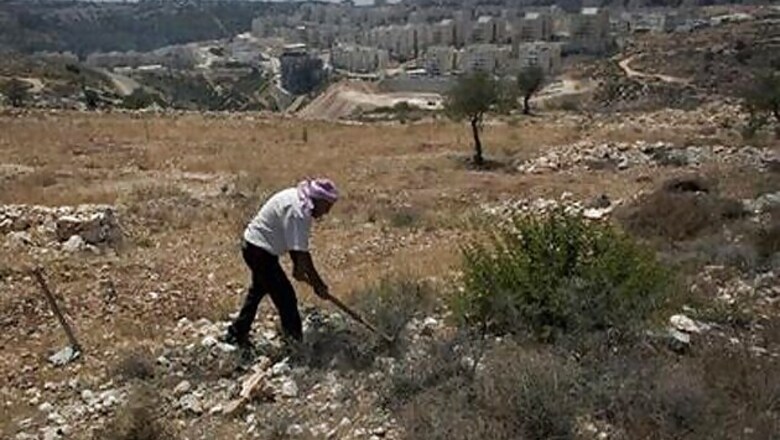
views
Reaching an Israeli-Palestinian peace deal within nine months is a target, not a deadline, a US diplomat in Jerusalem said on Wednesday, two days after the sides resumed negotiations and ended a five-year freeze.
During the talks, US Secretary of State John Kerry is expected to visit the region "on a regular basis" to check on progress, said Michael Ratney, the US consul general in Jerusalem. John Allen, a retired US general, will work closely with the negotiators on security arrangements, Ratney said.
Israelis and Palestinians are trying to reach agreement on the terms of a Palestinian state alongside Israel. In two previous attempts, in 2000-2001 and in 2007-2008, the two sides made progress on drawing a border between Israel and a state of Palestine, but negotiations broke off - each time under disputed circumstances - before they could close a deal.
The Palestinians want a state in the West Bank, Gaza Strip and east Jerusalem, lands Israel captured in the 1967 Mideast war, but have said they are ready to swap a small part of the occupied lands for Israeli territory. This would enable Israel to annex some of the dozens of settlements it has built in the West Bank and east Jerusalem since 1967. Some 560,000 Israelis live there.
Palestinian President Mahmoud Abbas initially insisted he would not return to talks unless Israel either halted settlement building or recognized its pre-1967 war line as the starting point for border talks. Israeli Prime Minister Benjamin Netanyahu rejected both demands and said the Palestinians should raise the issue of settlements in negotiations.
In the end, the Palestinians resumed negotiations without Israel meeting either of those demands. Abbas has said he has received assurances from Kerry that the US views the 1967 line as the basis for border talks.
The US sided with the Israeli view that the fate of settlements should be dealt with during the negotiations. "We said it many, many times (that) we don't accept the legitimacy of continued settlement activity," Ratney told Palestinian reporters Wednesday. "This is a core issue that the parties need to sit down and discuss."
Abbas has said that during Kerry's attempt to restart negotiations, Israel proposed at one point to freeze construction in settlements that fall outside its so-called settlement blocs, or clusters of settlements, all but one of them relatively close to the 1967 line. Israel intends to keep the blocs in a final peace deal.
Abbas has said he rejected the idea because the Palestinians - in line with most of the international community - view all settlements as equally illegal, regardless of location.
An Israeli government official confirmed Wednesday that Israel raised the possibility of a partial freeze at one point, but that the Palestinians rejected the idea. He spoke on condition of anonymity in line with briefing regulations.
Despite the wide gaps between the two sides, Ratney said the US believes the sides can "achieve something in nine months" if they work hard.
"We never set a deadline, but we have clearly set a target," he said.
In two decades of intermittent negotiations, such timelines have been ineffective in prodding negotiators.




















Comments
0 comment